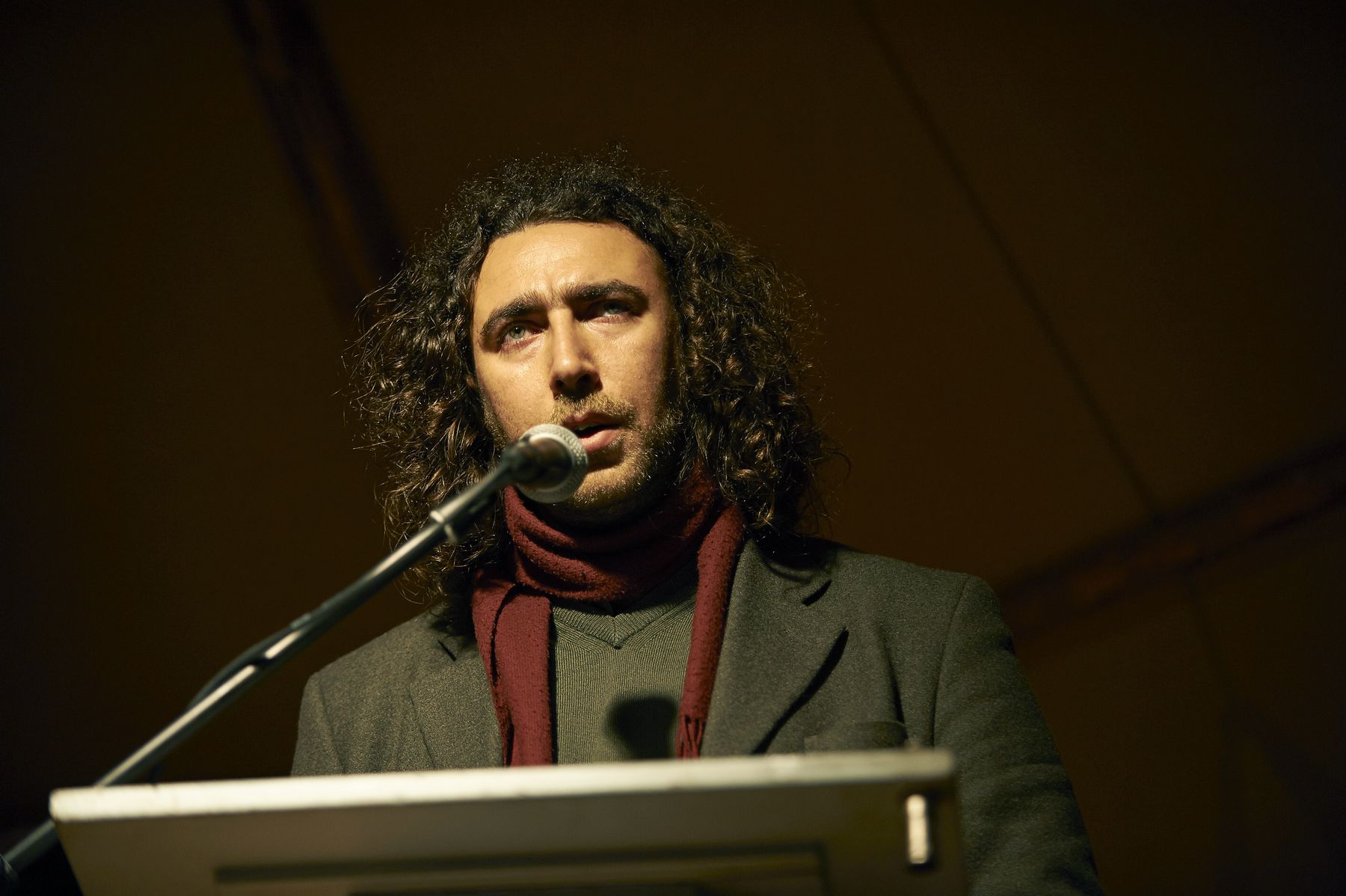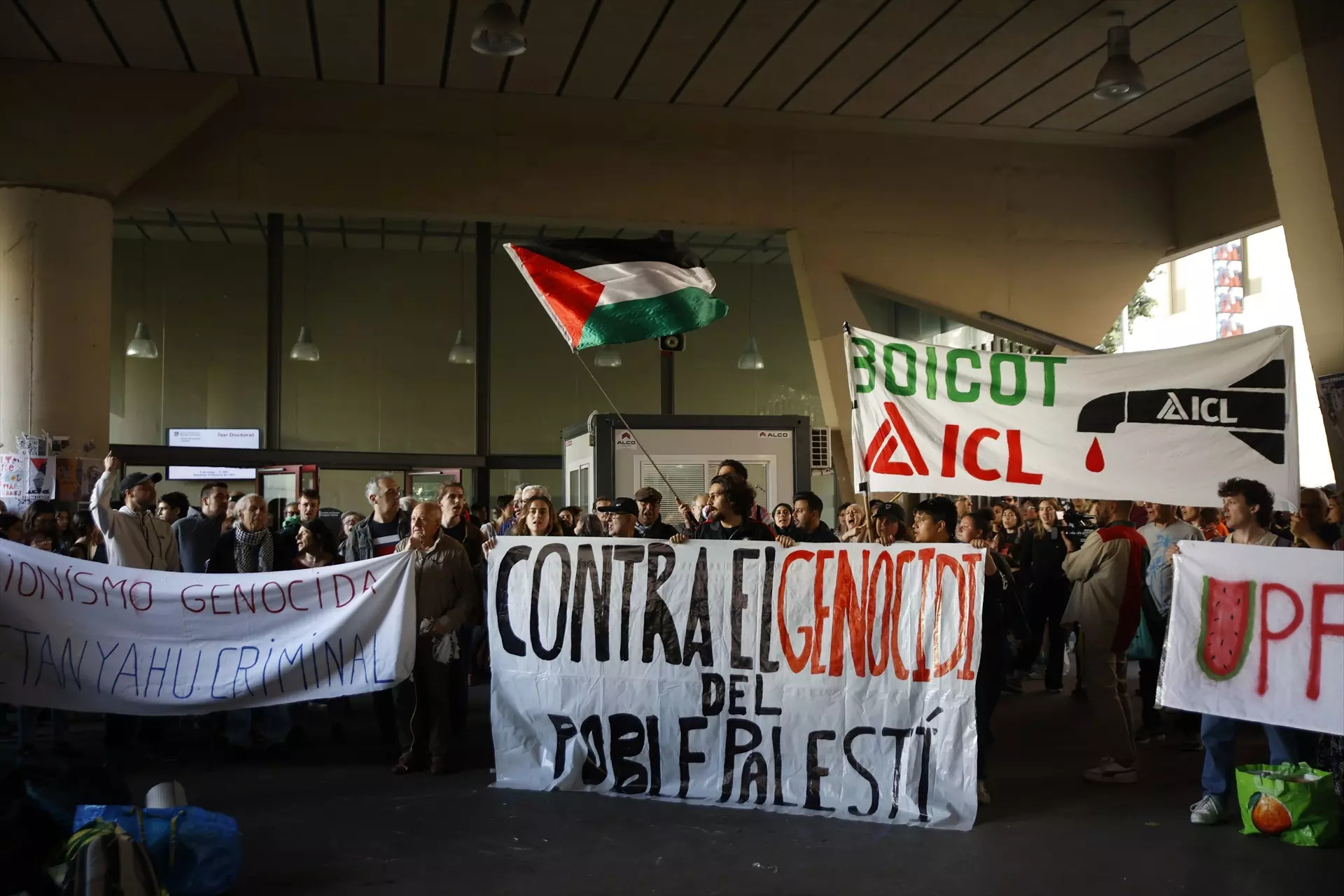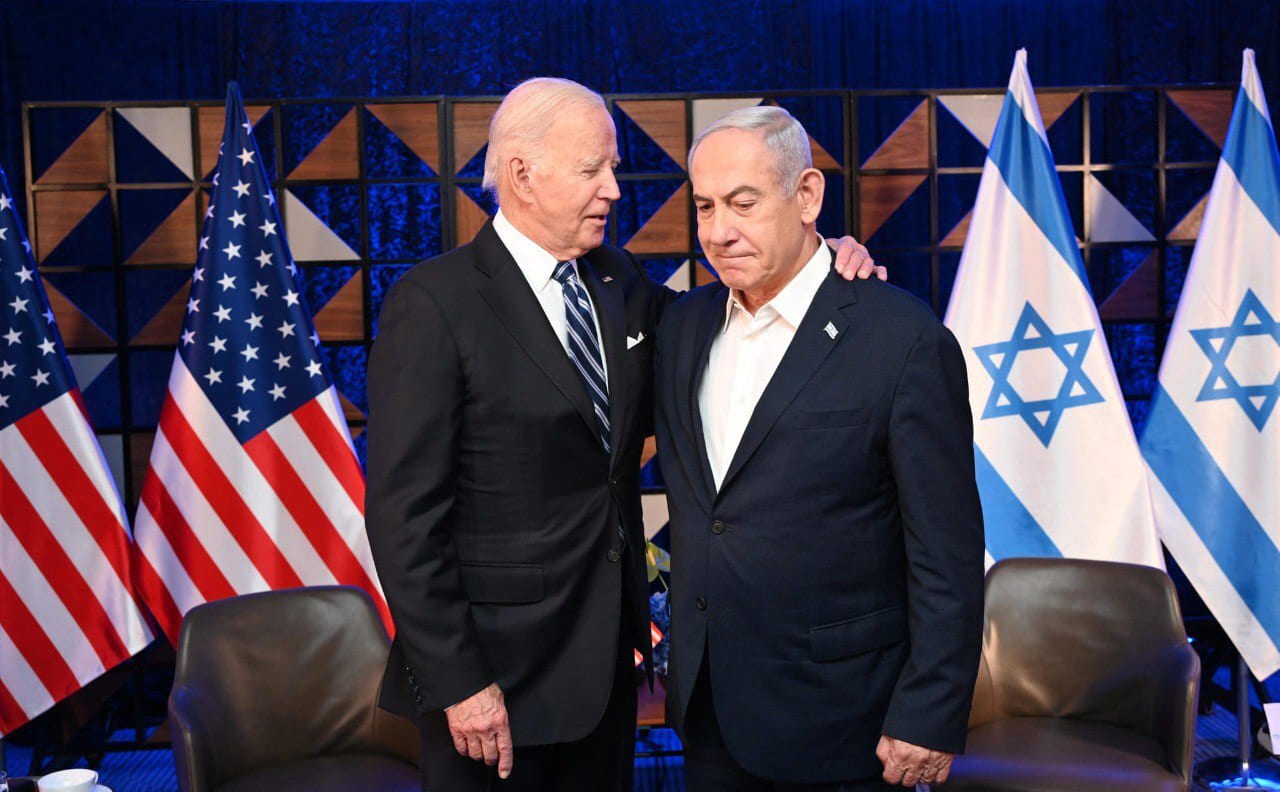The only democratic state for Palestinians and Jews
- “Conflict forever”, “unending war”, “unsolvable”... this is the interested dead-end maze built by the Western imaginary on the historical conflict between the State of Israel and the Palestinians. And, at best, “there is a two-state solution”, as established by the UN in 1948, on the one hand Palestine and Israel on the other. But the failure of this solution is becoming more and more evident and the solution of the only secular democratic state is becoming more and more widespread.

The two States’ proposal is slowly developing over the past 75 years, mainly because the State of Israel has never believed it and the UN has not had the strength to impose it, not least because the West, at the head of the United States, has used the Zionist State as a “wall against the barbarians of Asia”. The founder of Zionism, Theodor Herzl, showed a good vision of the strategist by representing in 1896 the new Jewish nation as a wall to protect Europe from Asia: “An advanced position of civilization against barbarism. And as a neutral state, Europe should guarantee our existence.”
The UN proposed in 1947 the creation of a single state for Arabs and Jews, but Zionism refused and EE.UU. and the Soviet Union immediately impose the idea of both States, as the historian Josep Fontana explains in his book For the sake of empire. The Jews represented 33 per cent of the population and represented 6 per cent of the territory, but they would be left with 56 per cent of the land and almost half a million Palestinians with 42 per cent of the land and also with the poorest lands. Between Jordan and Israel, the thorny Jerusalem would be managed.
The Palestinians did not accept the division, and after six months of very unbalanced civil war, including that of the agreements sold by the USSR of Josif Stalin to Israel, Ben Gurion proclaimed the State of Israel on 14 May 1948. Five Arab states declared war on Israel, but, easily overcome, Israel appropriated all the necessary territory for Arabs and Jews. This failure was the “disaster” known to the Palestinians as Nakba, and as a result Israel expelled 750,000 Palestinians from their lands. This is the first burial of the only state for Arabs and Jews, and the first steps of the proposal of the two UN states.
The UN proposed in 1947 the creation of a single state for Arabs and Jews, but Zionism refused to do so, and the US and the Soviet Union immediately impose the idea of the two states.
.jpg)
.jpg)
Israel continued mercilessly with the colonization of Palestinian lands and during the Six-Day War of 1967 conquered Gaza and the West Bank theoretically Palestinian lands, filled with Sinai from Egypt and the Syrian Golan. Since then, the UN has repeatedly called for its withdrawal through various resolutions, but Israel, unless it returned the Sinai desert to Egypt in 1980, has always rejected the petition.
Gada Kharmi, a Palestinian writer based in London – a state. The only democratic future is the author of the book for Palestine – Israel – the idea of the only secular state was put forward in 1969 by the Palestinian Freedom Democratic Front. The group was from the Palestine Freedom Organization and the Palestinian National Council endorsed the proposal at the congress that year. According to the writer, he never succeeded, neither Israeli nor Palestinian, and he gradually stayed in nothing. Since 1974, in the strong context of decolonization and the right of peoples to self-determination, the idea of the two States among the Palestinian population gained strength. Two decades later, the Oslo Peace Accords came to pull this thread.
Sixteen Israel and the EAP signed the
Oslo Accords in 1993 and brought the Palestinian National Power. With a level of autonomy, he would manage the territories of Gaza and the West Bank. It was the seed of the future Palestinian state. But the agreement excluded two key issues for the Palestinians: on the one hand, hundreds of thousands of Palestinian refugees would not have the right to return to their territories; and, on the other hand, Israeli settlers could continue with the formation of Jewish colonies which, according to the UN, were constant since 1948, although illegal.
The Palestinian response was inevitable. In addition to the shortages of refugees and settlers, Israel left only 22 per cent of historic Palestinian territory: Gaza and the West Bank, united by a road fully controlled by Israel. We will not go into the failure of the Oslo Agreements here, but Israel has never respected what it has signed. The Israeli Labour pushed the road to Oslo, and when Benjamin Netanyahu of Likud was appointed Prime Minister in 1993, he said aloud that he would make efforts to bring the Oslo Accords to a standstill.
It should also be pointed out that the complicity and assistance of the major states of the USA and the European Union have been essential if Israel is to act with this kind of impunity. After Oslo, colonization has continued, which has once and for all irritated the Palestinians. To end the humiliation, Israel has made its rule the Palestinian National Power, and the legitimacy of the institution is now insignificant to the majority of Palestinians. And democratic legitimacy, because since 2006 there have been no Palestinian elections. In these post-Oslo fangos, Hamas has been created and developed, which today has become an image of Palestinian resistance.
The biggest obstacle: 600,000 settlers Israel is
entitled to defence, and when the situation is diminished, the solution of both states must be taken seriously. That is the speech that is being made these days by the Western powers on possible solutions to justify their action. Two territories, two peoples, two states. It seems logical and has been well seen for many years around the world – yet a third of the Palestinians in the West Bank support it, according to surveys conducted in September – and in many countries and movements for the Palestinians. However, the mark so far shows that the proposal is constantly committed to occupation and against the Palestinians. Since 2012, Palestine has also been an observer member of the UN, and 139 countries have recognised it as a state, but that does not serve it at all.
In fact, even with the best will, today the solution of the two states is not possible: What about the 600,000 Israeli settlers in the West Bank?
In fact, even with the best will, today the solution of the two states is not possible: What about the 600,000 Israeli settlers in the West Bank? It was possible to dismantle the settlements of the settlers of Gaza, but there were about 8,000 settlers there, and when their last position was dismantled in 2005, the right of Israel and the far right represented the end of the world. Imagine what it would be like in the case of the West Bank.
.jpg)
When apartheid hides For
more and more Palestinians, the solution of both states has become a formula to conceal the apartheid they live in and stabilize the present colonial situation. Apartheid is a system of exclusion strongly condemned by international law, but in recent decades Israel has done nothing but harden it. The situation of the Palestinians in the occupied territories is increasingly compared with that of the Blacks in South Africa.
This vision is becoming increasingly widespread at the international level and the reports supporting it are being expanded. Amnesty International, Human Rights Watch or other institutions have published several publications in recent years. Among them, one of the strongest is the one published in 2017 by the UN Western Asian Economic and Social Group: In a 75-page report, Richard Falk and Virgini Tilley, American professors and researchers at the university, described Israeli apartheid in depth. They say that “there is very strong evidence that Israel is guilty of the crime of apartheid... but for this to take effect it would have to be said by an international tribunal with authority. Any delay extends the dependency of the Palestinians and that increases crime (...) Therefore, to end this crime against humanity it is necessary to act quickly.”
For more and more Palestinians, the solution of
both States has become a
formula for concealing the apartheid they live in and stabilizing the present colonial situation.
However, large Western states see no apartheidi, and when violations of rights are denounced, they justify that the war context brings those situations, that there are violations of rights on both sides. The 2020 peace plan of former US President Donald Trump was the last diplomatic chapter of Palestinian exclusion. We do not have the plan that was born dead in these lines in detail, but in the presentation of Trump and Netanyahu in the White House, without Palestinians, what the latter said may be enough to realize the circumstances of the plan: Netanyahu would immediately assume the Jewish settlements in the Jordan Valley and in the West Bank, committing itself not to authorize new colonies on the land provided by the agreement to the Palestinians, for at least the following four years.
What is apartheid? The violations of rights suffered
by the Israeli Palestinians are well known to those who want it, and can be followed in different media year after year. In the largest, however, these violations of rights are the result of war and therefore not of apartheid. The Amnesty International website thus describes a case of apartheid: “In May 2021, several families from the Sheik Jarrah neighbourhood in East Jerusalem began to protest Israel’s intention to expel from there to house Jewish settlers in the neighborhood. There many Palestinians expelled from their lands in 1948, but since Israel occupied these lands in 1967, their inhabitants must live these situations over and over again.” Palestinians living in the occupied territories and in eastern Jerusalem have no right to land or to build houses, or Israel uses them freely. Consequently, if the settlers come to build a location, they expel the Palestinians, or the government demolishes thousands of Palestinian houses claiming that they were built without permission.
Israel is a Jewish state, and Jews and Palestinians have different rights. Furthermore, Israel divides the Palestinian population into several areas and in them each group has different rights: residents of Israeli territory, occupied territories and eastern Jerusalem. In the latter, despite the fact that the Palestinians live there for decades, Israel considers them as residents and can therefore expel them whenever they want.
In June the case of the elderly couple Nora Ghaith and Mustafa Sub Laban was reported: Since 1953 Israel has driven them out of the house for rent in eastern Jerusalem. Another 150 families have the same risk. The UN sent a team of experts to analyse these cases and its report leaves no doubt: “As we have said on several occasions, the expulsions of Palestinians from East Jerusalem are part of the machinery of Israeli apartheid and are aimed at strengthening Jewish property in the city and racially dominating its inhabitants. Israel must dispense with these practices.”
Let us continue with exclusion: the Palestinians who have at some point been expelled from their lands have no right to return. On the contrary, the Jewish state recognizes the right of citizens of all parts of the world of Jewish origin to live in Israel. And it gives hundreds of thousands of settlers land stolen from the Palestinians. The suffocating control of the citizen’s movement, the brutal restriction of civil and political rights, the prohibition of freedom of expression, settler attacks, arrests, murders and torture are common in the occupied territories. The walls separating Gaza from the West Bank of Israel are the main signs of exclusion. A suffocating apartheid which is partly covered by the democratic liberal system enjoyed by the Jewish citizens of Israel, but less and less.
Palestinians who have been expelled from their lands at some point have no right to return. On the contrary, the Jewish state recognizes the right of citizens of all the world of Jewish origin to live in Israel.
.jpg)
The opportunity of both states has lost strength According to surveys conducted in recent
months in Israel and the West Bank, the solution of both states has less and less citizen support in both areas. According to the survey published in September by the US Pwe Research Center, 35% of Israelis believe in peaceful coexistence between the two states.
According to the survey published at the same time by the Centre for Research on Policy and Surveys in Palestine, 67 per cent of Palestinians are refusing the solution of both states, especially as the settlers do not allow it. In an interview by the BBC, the 17-year-old Janna Tamimi answers: “And where are the limits to be set?” It is significant that Israel has not yet established the borders of its state. Over the past 20 years, the centre based in the West Bank has analysed the views of young people aged 18 to 19, and has concluded that the solution of both states has less and less support among young people, while positions in favour of armed struggle are becoming stronger. And also Hamas.
In the proclamation of the creation of the State of Israel, the first Prime Minister, David Ben Gurion, said: “The State of Israel shall guarantee full political and social equality, without religious, racial or sexual discrimination.” Taking into account the massacres committed by symonic-terrorist groups on the road to the creation of the state or since then, these words are banal, but there is the core of the conflict: with the same rights, the only secular state that will welcome the Jews and the Palestinians, which can have various forms, with a single parliament or with a federal or confederate structure.
.jpg)
On the occasion of
the South African Road, Apartheid, on 13 November 1974 South Africa was expelled from the UN. From then on, the country became increasingly isolated, among other things, the harsh international boycott campaign, which had a major influence on the economy. Finally, following a complex peace process, the first democratic elections were held in the country on 27 April 1994. South Africa also established apartheid in 1948, giving legal coverage to the previous oppression.
The apartheid regime took almost half a century to bury itself and international pressure was fundamental. That is why, according to more and more players, it is time to take the same path in the Middle East, but to do so we must reject the proposal of the two states, because only then will the single territory be seen, the only state in which the State of Israel rejects and oppresses the Palestinians through apartheid.
It cannot be denied that in this long conflict the lack of solutions in the tunnel is almost inevitable. It is, however, about what is being fed into the future as a solution, or the solution of the two states that hide apartheid, or the only secular democratic state that binds Palestinians and Jews, structured under any form. The first is 75 years old and the consequences are obvious, it will not be possible for the Israelis to live in peace if they have to tread on the Palestinians. The representation of the second is practically impossible today, but it is the only door that offers a just peace to the two peoples.
És el diumenge d'una setmana esgotadora. Per a fer poques coses, encara que sempre hi hagi una tasca a casa, aquesta vegada no urgent. Ideal per al Dolce far nconforme, perquè el temps també és dubtós. Bon dia per a quedar-se a casa. Però per al migdia està convocada una... [+]
És molt significativa la lluita de les universitats estatunidenques per a reivindicar la fi del genocidi palestí i el seu dret a la llibertat. Els esforços del sionisme, amb falses acusacions d'antisemitisme, s'estan girant en contra. Estudiants i col·lectius de treballadors,... [+]














